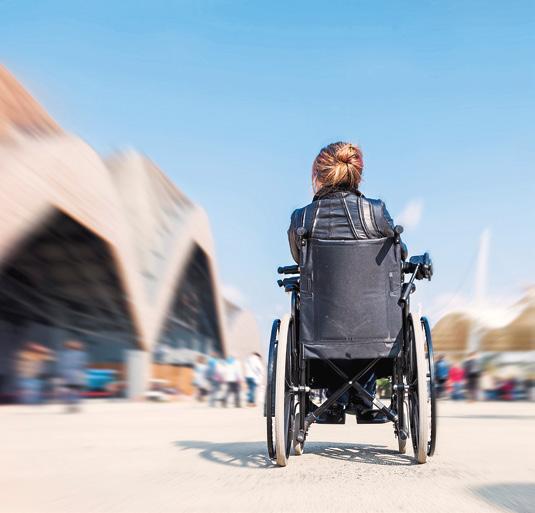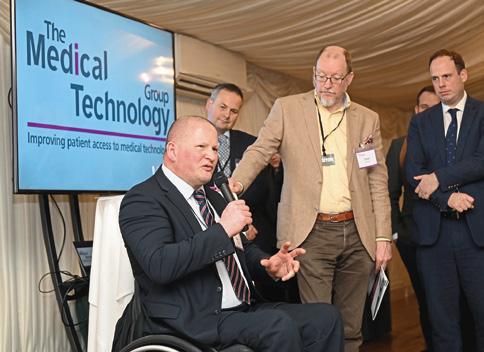
2 minute read
ASSESSING SPINAL CORD INJURY –CAN IT BE IMPROVED? RESEARCHERS WANT TO HEAR YOUR THOUGHTS ON A POTENTIAL NEW STUDY
Researchers want to speak to spinal cord injured (SCI) people and their families about the Neuromap project – a study exploring a new way to assess SCI which could determine whether there’s the potential to improve recovery of muscle function after injury.
A collaboration between researchers at Imperial College London and the National Spinal Injuries Centre in Stoke Mandeville Hospital, hopes to discover whether a type of brain stimulation, known as transcranial magnetic stimulation (TMS) can be used to improve post-injury assessment for SCI people –and provide extra information on the health of the spinal cord.
A painless procedure given through a paddle placed on the head, TMS uses strong magnetic fields to activate parts of the brain controlling muscles. Muscle contractions are recorded using electrodes stuck to the skin. If muscle contraction is detected, it suggests there is a connection from the brain to the muscle and means that some spinal cord connections are still intact.
Researcher Rowan Boyles, MSc from Imperial College said: “We think this assessment could give more information than either the scans or
Research Paves The Way For Urinary Tract Infection Prevention

physical assessments doctors and therapists carry out. For example, if someone is not able to move a muscle by themselves, but TMS shows they have connections between the brain and muscle, this might give more information about their potential for recovery, or what kinds of rehabilitation would be most helpful.”
We want to discuss the project with people living with SCI to understand better whether this research is important
He added: “We are not yet recruiting people to take part in this research. At this point, we want to discuss the project with people living with SCI to understand better whether this research is important, whether what we’d be asking people to do as part of the research is reasonable and feasible and, finally, whether SCI people would be comfortable taking part.”
If you would be interested in discussing the project with researchers and/or would like to be part of the project advisory group, please email Rowan Boyles at r.boyles@imperial.ac.uk
Stoke Mandeville Spinal Research (SMSR) based at the worldrenowned National Spinal Injuries Centre, has committed £70,000 towards a study aimed at helping people living with spinal cord injury who are prone to urinary tract infections (UTIs). Thanks to funding from SMSR, researchers from Royal National Orthopaedic Hospital, Stanmore, London, are studying people with spinal cord injury (SCI) administering antibiotic treatment in the comfort of their own homes by instilling a solution via bladder catheters. The aim is to prevent the onset of UTIs. Minimising the effects of UTIs will enable SCI people to continue to work, study, and maintain a good social and family life. Recurrent UTIs can be extremely debilitating, with typical treatment and oral antibiotics posing a real risk of resistance developing. Commenting on the project, lead researcher Dr Sarah Knight said: “Urinary tract infections are a major factor in reducing the quality of life for people living with spinal cord injury. We hope that bladder instillation of the antibiotic gentamicin will prevent recurrent infections without the need for oral antibiotics and their associated side effects.”
For More Information
To find out more visit lifeafterparalysis.com










